Book review: Harmattan Season, by Tochi Onyebuchi
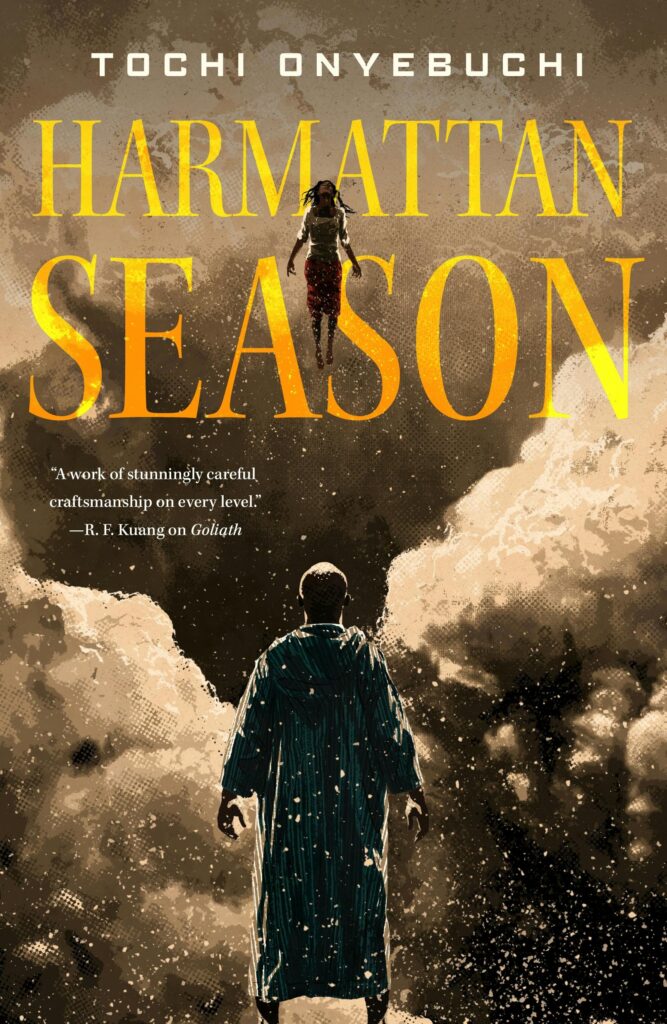
Even the most surreal fantastic elements of the book end up being employed in ways that eventually make some sense. But despite some familiar elements, their combination and development is unique and engaging. I wouldn’t quite call Harmattan Season an easy read, but it absolutely kept me interested throughout, and I was entirely satisfied with the ending.
Book Review: Songs for the Shadows: A Sauútiverse Novella, by Cheryl S. Ntumy
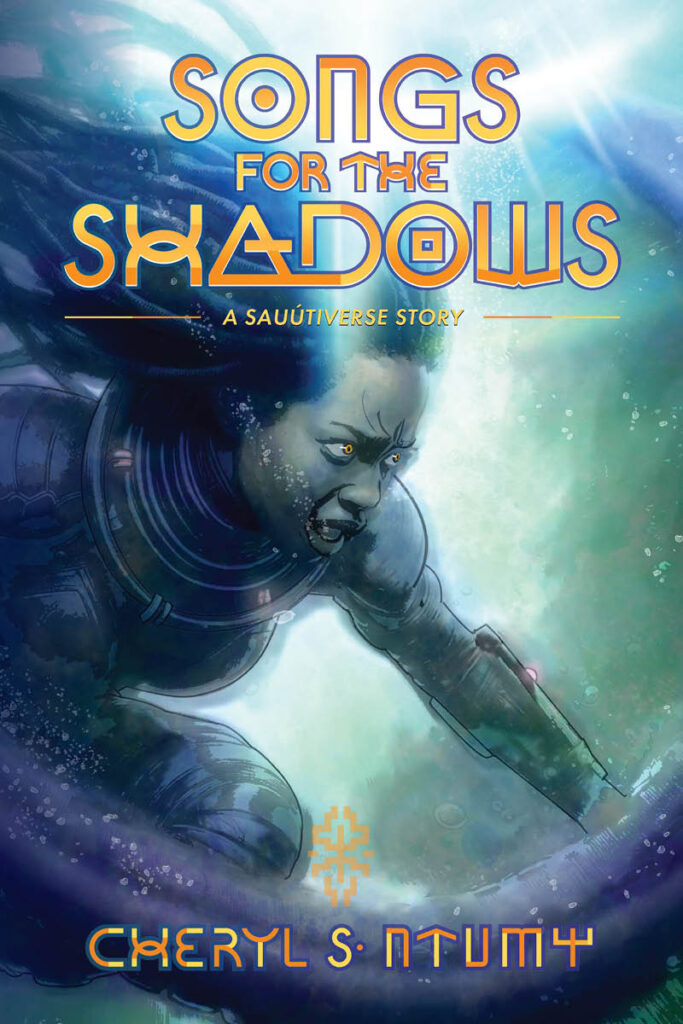
“I found the worldbuilding satisfyingly rich and intriguing … What I did find challenging was empathizing with the protagonist, although eventually I found myself at peace with her, as she found her own type of peace.”
Book Review: Lost Ark Dreaming, by Suyi Davies Okungbowa
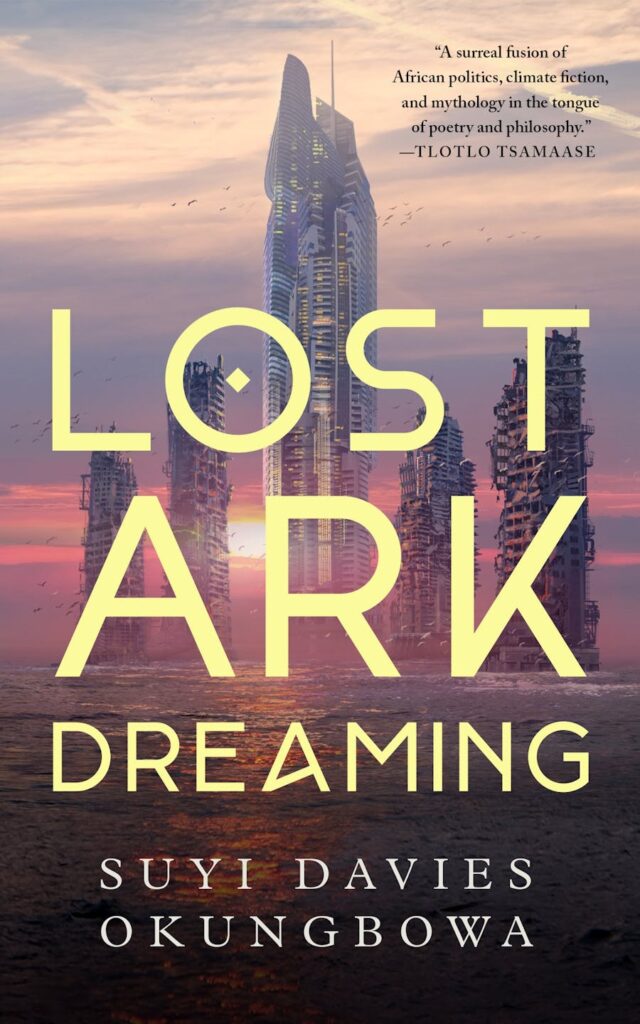
I had forgotten the publisher’s description of Lost Ark Dreaming, by Suyi Davies Okungbowa, by the time it surfaced atop my to-be-read pile. So I went in cold, and it turned out that the water was fine! This is a gripping novella that starts fast and keeps moving with swift assurance, amid brief interludes and “historical excerpts” that give more context to the action, while deftly building characters whose revealed motivations make even some surprising decisions feel natural. I enjoyed it quite a lot. Suyi Davies Okungbowa is a rising star in speculative fiction, a Nommo Award winner who has appeared twice before on Skiffy and Fanty’s website. Tonya Moore interviewed him about his work in general and specifically his The Nameless Republic trilogy. Paul Weimer’s review of the first two books in that series praised the immersive worldbuilding and said, “the two books really feel like to me a study and critique of decaying imperial power, and what happens when that eroding power slips…” Power is a major focus in this novella, too, although it’s unrelated to his previous books. Tiers of power are given physical reality, as the Uppers, Midders, and Lowers live in their respective floors of offshore towers after the seas rose and drowned Lagos, Nigeria, and surrounding coastal areas. The higher Up that one lives, the more authority, light, fresh air, and space one has; Midders keep things running and try to keep themselves from falling in status; and Lowers work and scramble to survive, down in the dark, dank floors below sea level. This novella starts off feeling like a combination of climate fiction and science fiction, although faith and fantasy elements also make themselves known eventually. Although most of the viewpoint characters (a Midder, an Upper, and a Lower) start out trying to focus on the here-and-now, and submerging past traumas (the Upper has done this so successfully that the reader sees only his ambitions throughout much of the book), events force them to confront their memories and longings for connection with other people, with the environment, and with the Unknown. Lost Ark Dreaming starts with Yekini rushing to get to work, but she hardly has time to start stressing out about the effects of lateness on her career as an analyst in civil service before she’s sent on her first solo field assignment—as a punishment? Unfortunately, it’s a trip to the Undersea levels; more unfortunately, she has to shepherd an Upper official, Ngozi, there, protecting him while trying to make him feel sufficiently deferred to; even more unfortunately, when a Lowers-level head of safety, Tuoyo, leads them to the site of a breach that she’d already patched, Yekini discovers indications of an intruder. Things rapidly spin out of all their control to go from bad to worse. Some readers may be annoyed that the novella is slightly open-ended, with no sure societal resolution to the climactic events of the finale. But the protagonists all make important decisions, including some self-sacrifices aimed at helping their community. To me, this has a hopeful ending, and I can say I am very well satisfied with the book. Along with the strong plot and characterization, the language craft in this book is worth mentioning. The Interludes are poetically dreamy, and some of the “historical excerpts” are intentionally distant and formal, but most of the prose is vivid and active. Descriptions put the reader right there: “The Lowers smelled like a damp cloth that had been locked in a steel box for years… the air weighed a ton, and Yekini’s lungs worked hard to draw it in. Her chest felt waterlogged, like a bad cough brewing.” A lot of the worldbuilding here is concrete, but I also love what the author can do with just one sentence: “Ensconced within the [glass] pendant was a flash of color, the only valuable part of the necklace—a small remnant of an aged, wrinkled orange peel.” That sets the reader imagining what kind of ruined world makes a relic like that so valuable. I love the little details like that. Finally, I’ll also mention that some elements of African culture that are woven throughout Lost Ark Dreaming enhanced my enjoyment of it—I say African rather than Yoruban, although that language is specifically mentioned, because refugees of various backgrounds have made their way to the towers, and some elements of religion, for example, have evolved to fit current circumstances. These elements strongly affect some characters’ motivations and decisions. There are further things I’d like to say about works that this novella is clearly in conversation with, but that would give away major spoilers, so I’ll stop here. Just know that Lost Ark Dreaming has my strong recommendation. Lost Ark Dreaming’s expected release date is May 21, so there’s still a short time to give it some extra love by pre-ordering it. https://us.macmillan.com/books/9781250890757/lostarkdreaming Content warnings: Blood, past traumas, threatened violence, offscreen mass deaths, bad air and filth, class oppression. Comparisons: Per the publisher’s description, “The brutally engineered class divisions of Snowpiercer meets Rivers Solomon’s The Deep …” Disclaimer: I received a free eARC of this novella for review purposes.
747. Wole Talabi (a.k.a. The Dreamer) — Shigidi and the Brass Head of Obalufon
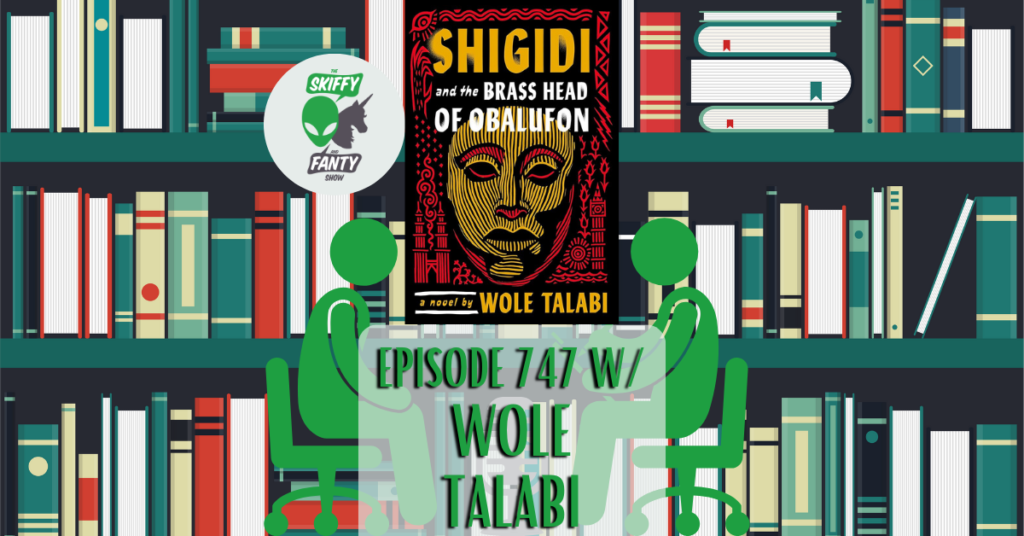
https://media.blubrry.com/skiffyandfanty/dts.podtrac.com/redirect.mp3/archive.org/download/sand-f-747-wole-talabi/SandF_747_WoleTalabi.mp3Podcast: Play in new window | DownloadSubscribe: Apple Podcasts | Spotify | Android | Email | TuneIn | Deezer | RSSMuseums, heists, and nightmare gods, oh my! Shaun Duke and Trish Matson are joined by the brilliant Wole Talabi to discuss his novel, Shigidi and the Brass Head of Obalufon! Together, they discuss Wole’s approach to storytelling, just what a heist in a famous museum means, the task of writing gods with complex views of the world, influences, and so much more! Thanks for listening. We hope you enjoy the episode!
Book Review: Kingdom of Souls by Rena Barron
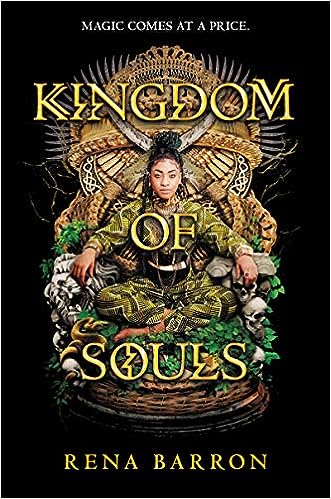
As the daughter of two powerful magic users, big things are expected of Arrah. However, while she is able to see magic, she has never manifested signs of having any herself other than a natural resistance to mind-influencing spells. When a friend of hers disappears as part of a spate of child kidnappings, Arrah takes desperate measures…
429. Xala (1975) — At the Movies

https://media.blubrry.com/skiffyandfanty/dts.podtrac.com/redirect.mp3/archive.org/download/sand-f-episode-429-xala/SandF_Episode_429_Xala.mp3Podcast: Play in new window | DownloadSubscribe: Apple Podcasts | Spotify | Android | Email | TuneIn | Deezer | RSSMortars, marabouts, and colonialist briefcases, oh my! Shaun Duke and Brandon O’Brien take At the Movies in a truly new direction as they explore Ousmane Sembène’s Xala! Together, Shaun and Brandon explore the history of one of the earliest and significant works of African SF/F cinema, from its themes of family, pride, and greed to its exploration of French colonialism in Senegal to the film’s treatment of the fantastic! Thanks for listening. We hope you enjoy the episode!

